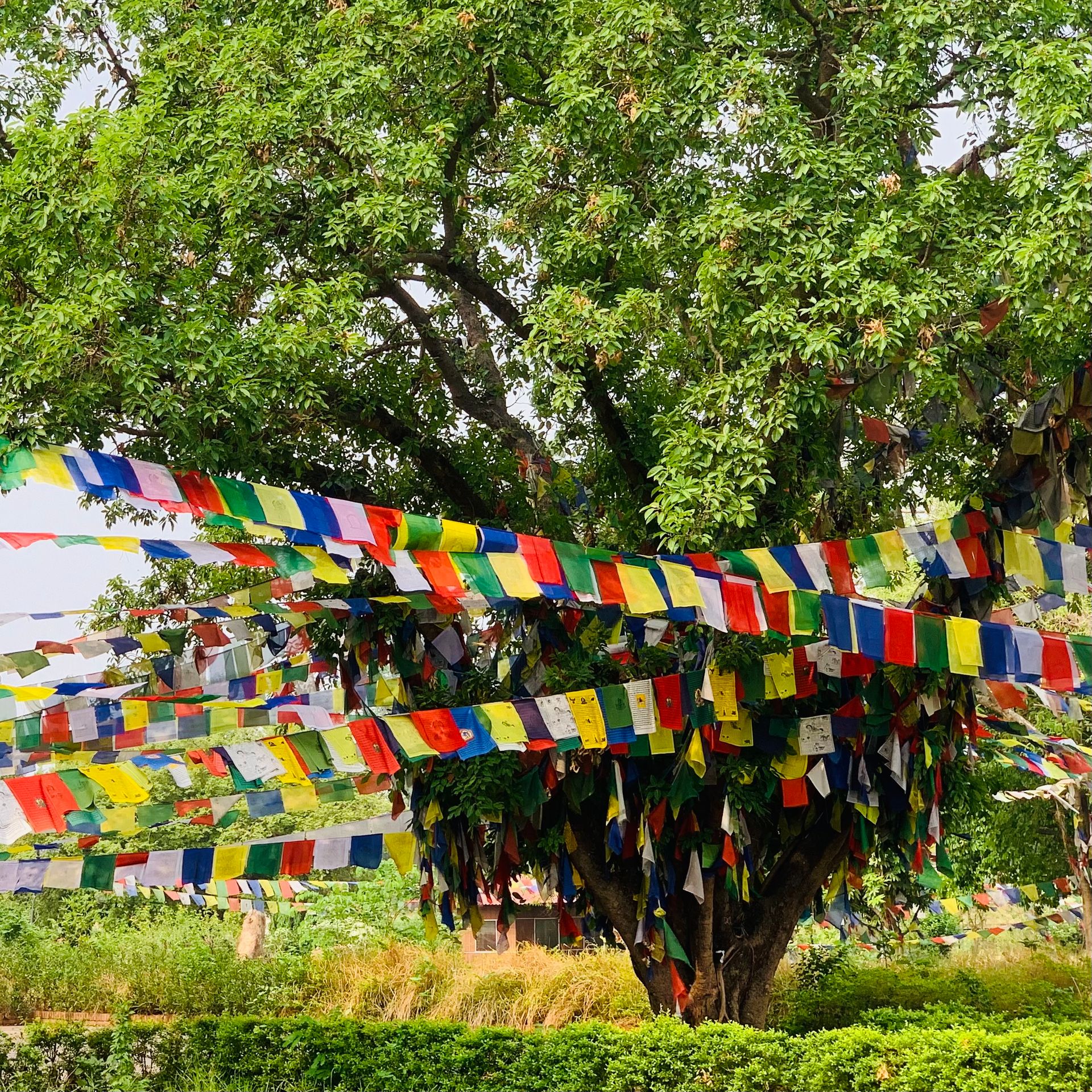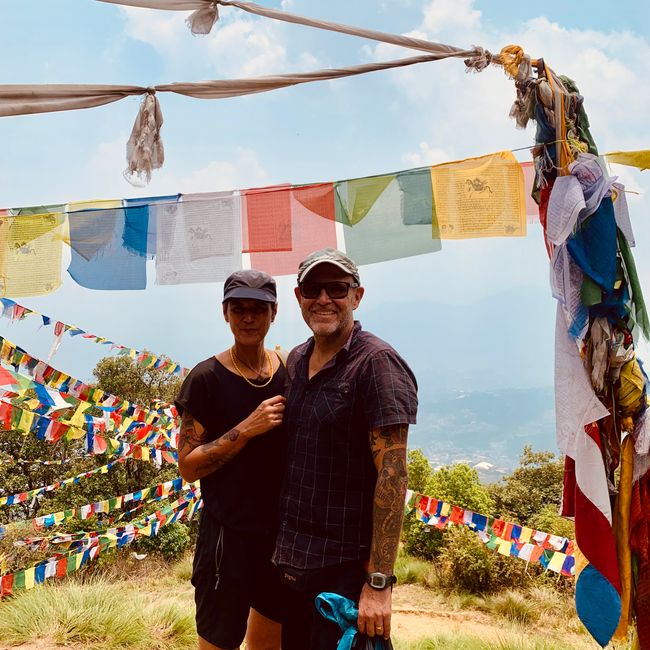Aŭtuno 2022 - Grekio
Eldonita: 14.10.2022
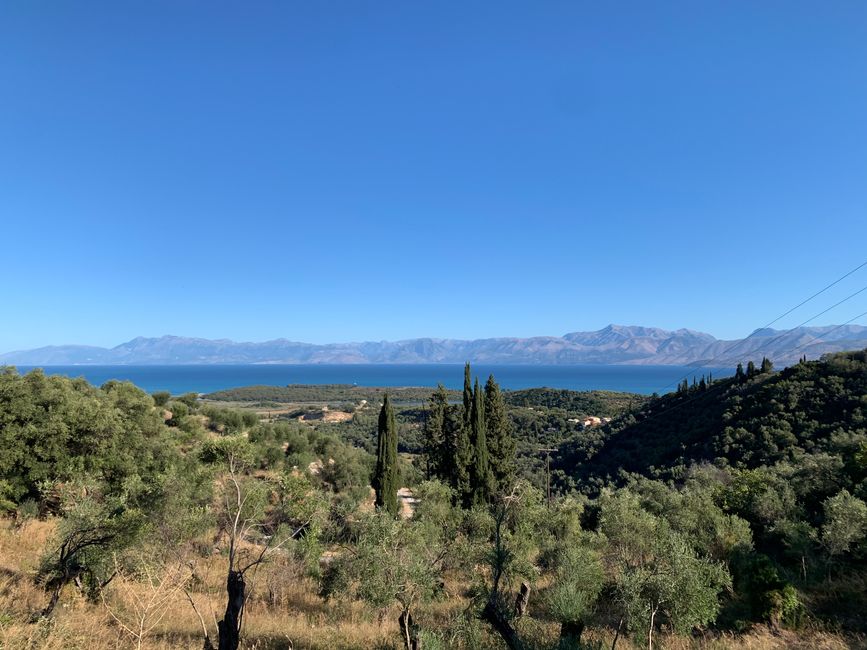
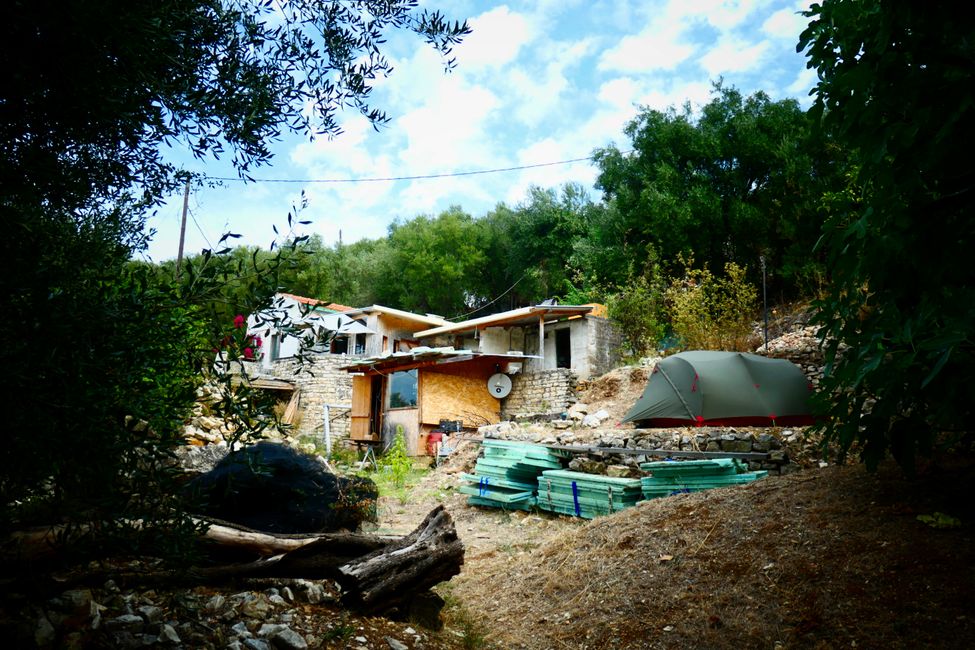
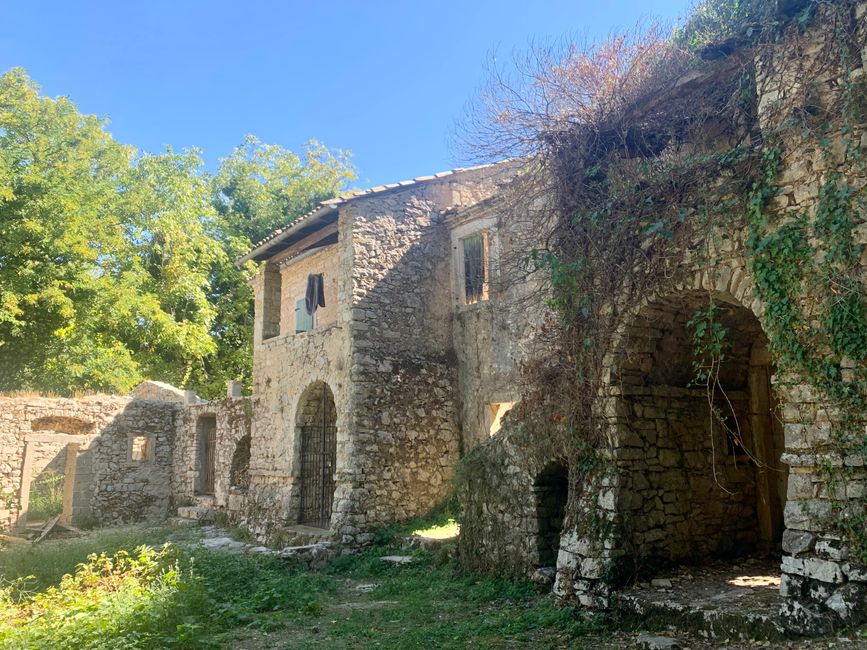
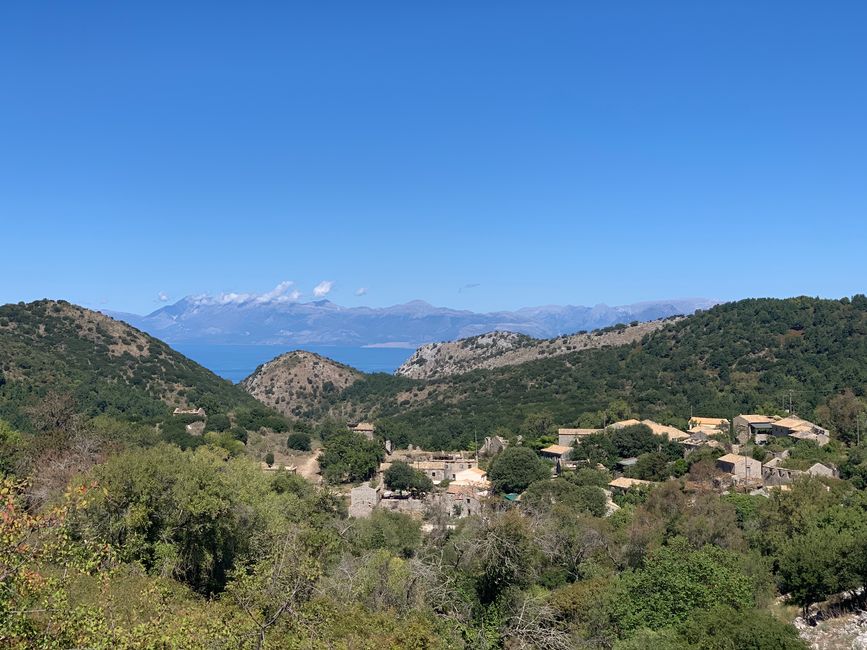
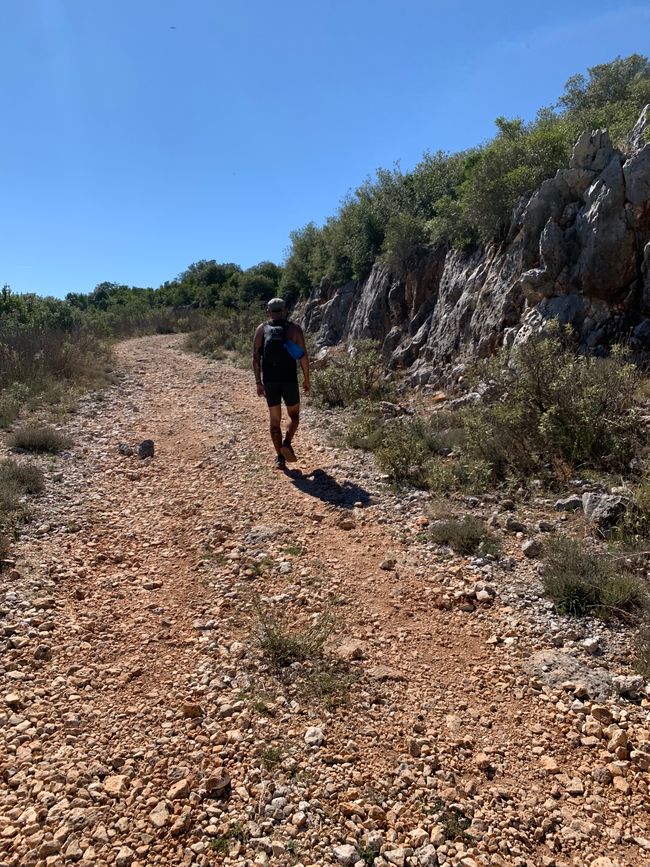
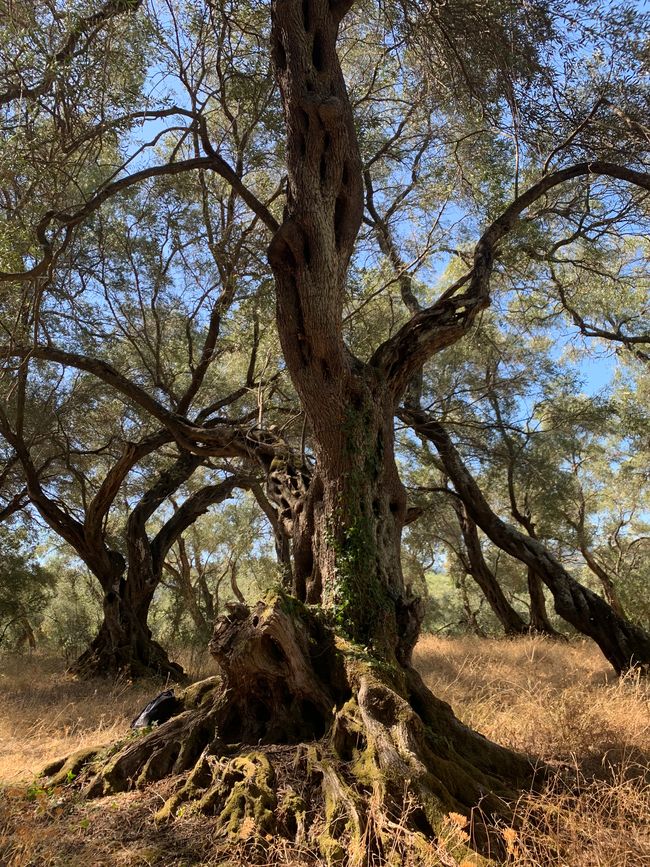
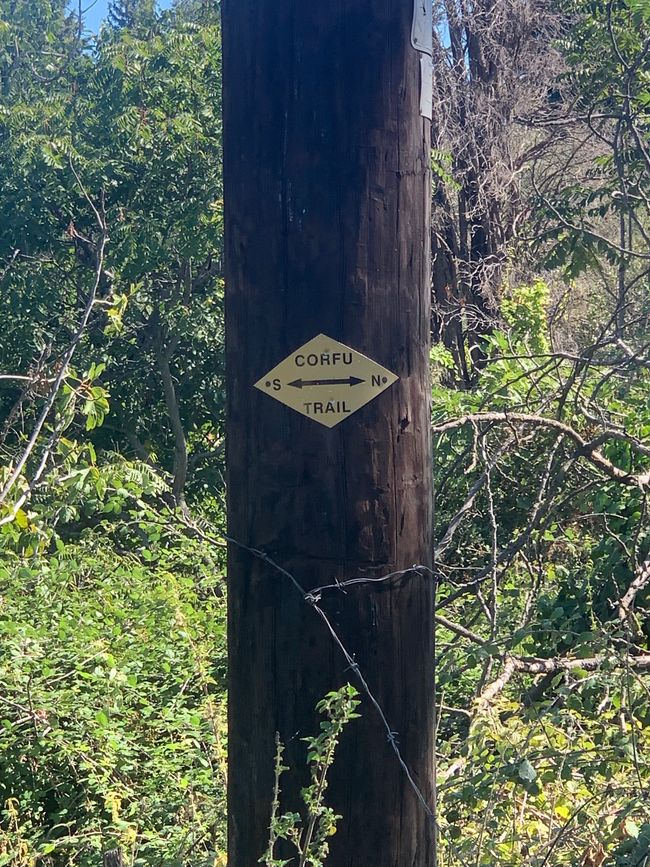
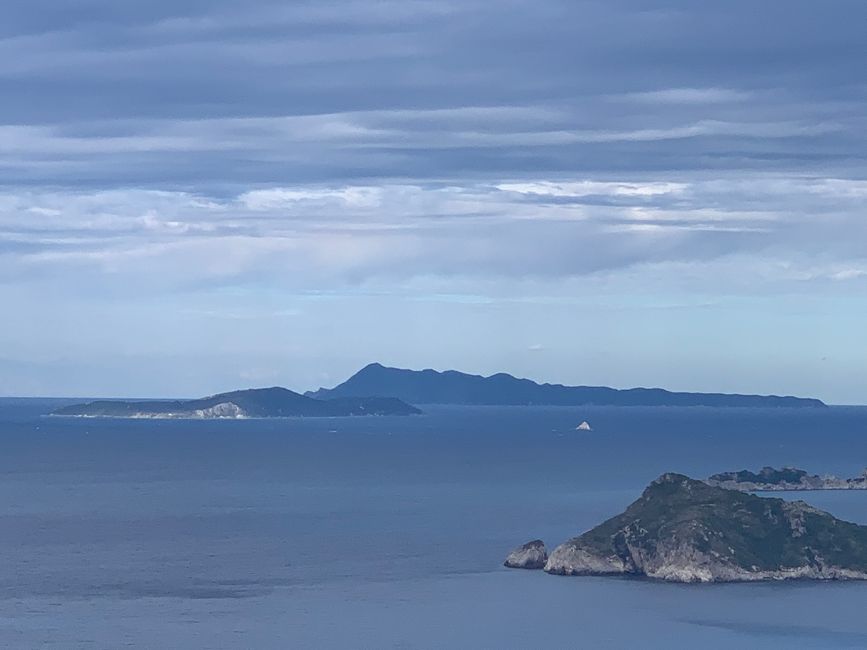
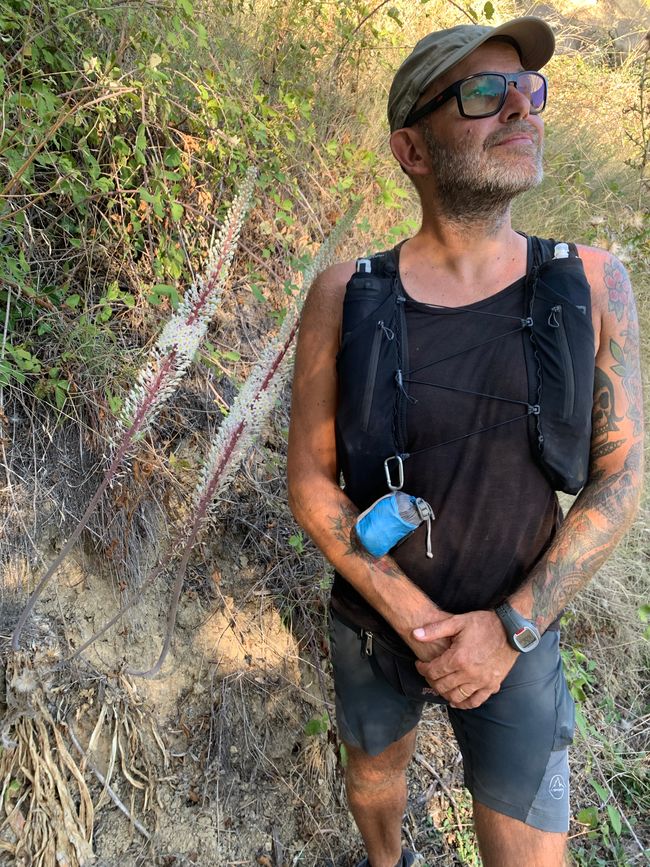
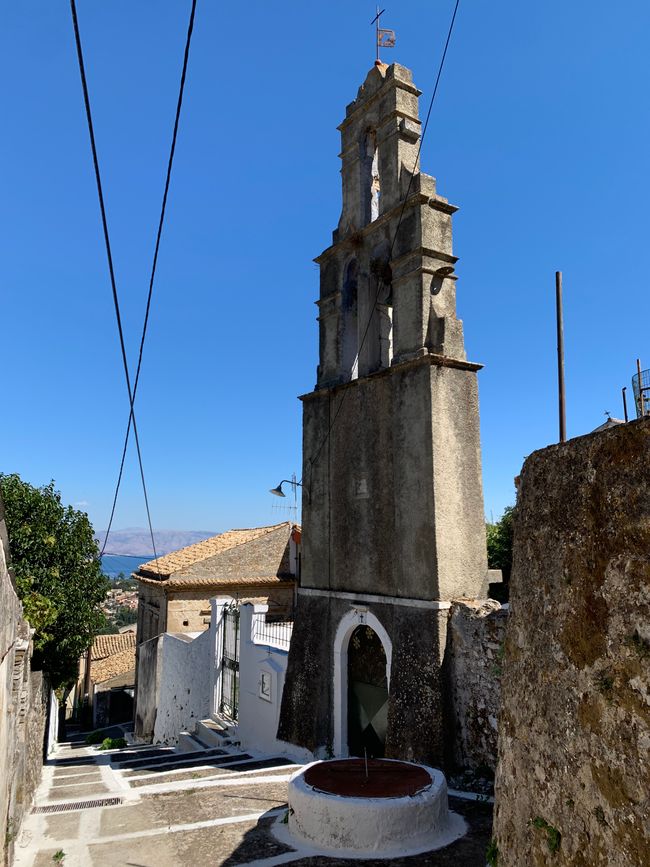
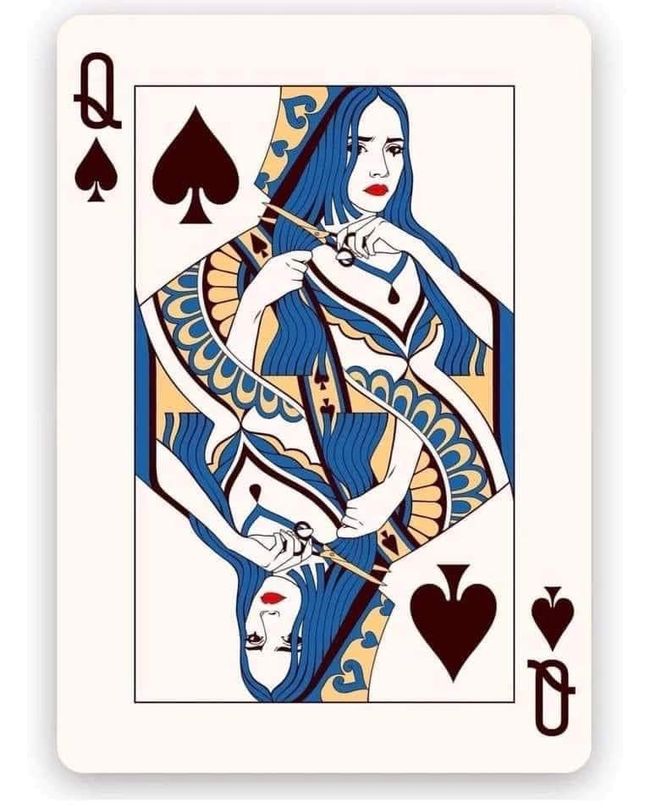
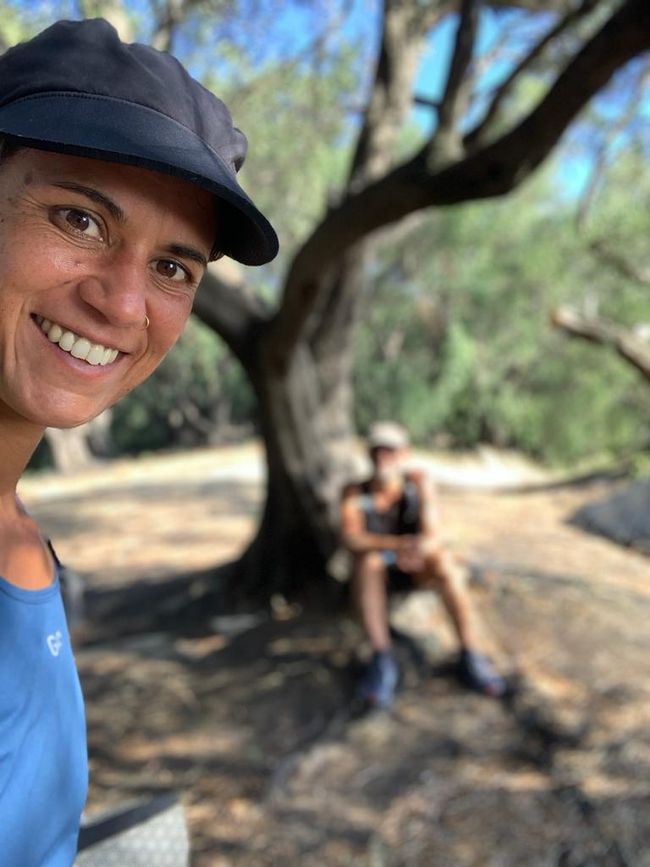
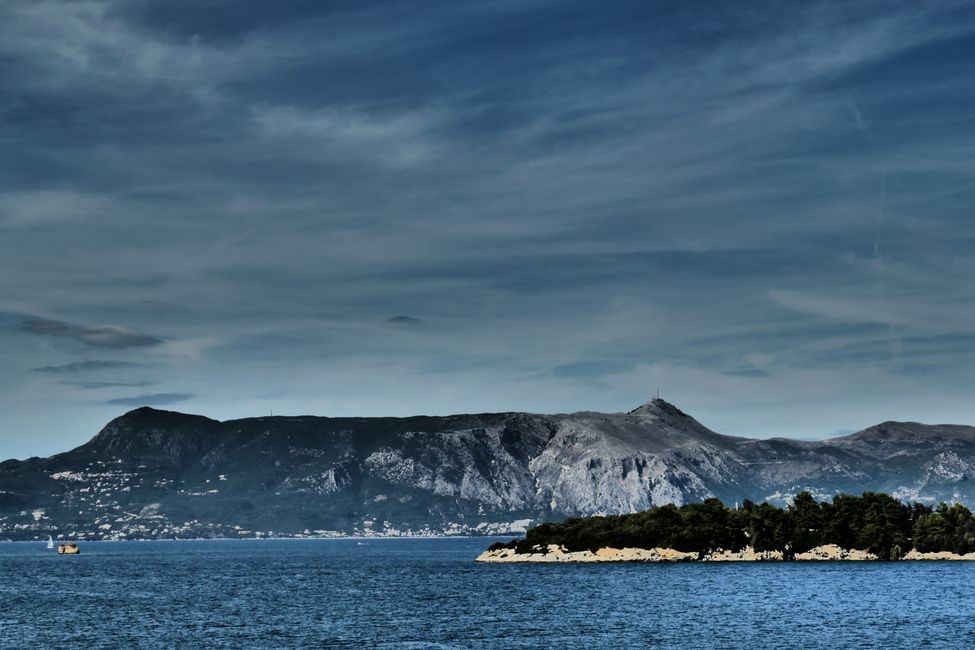
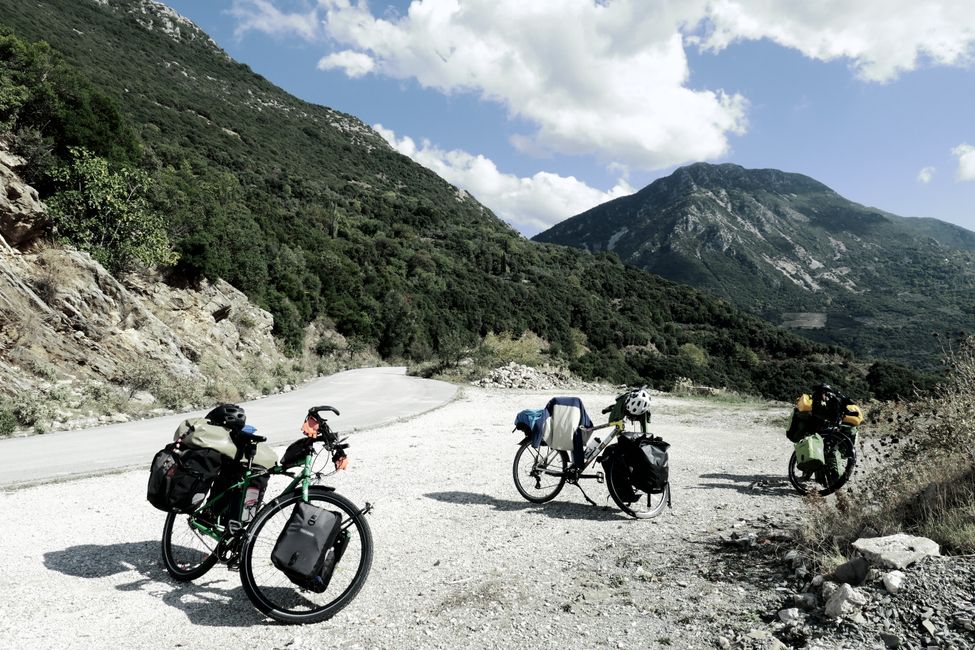
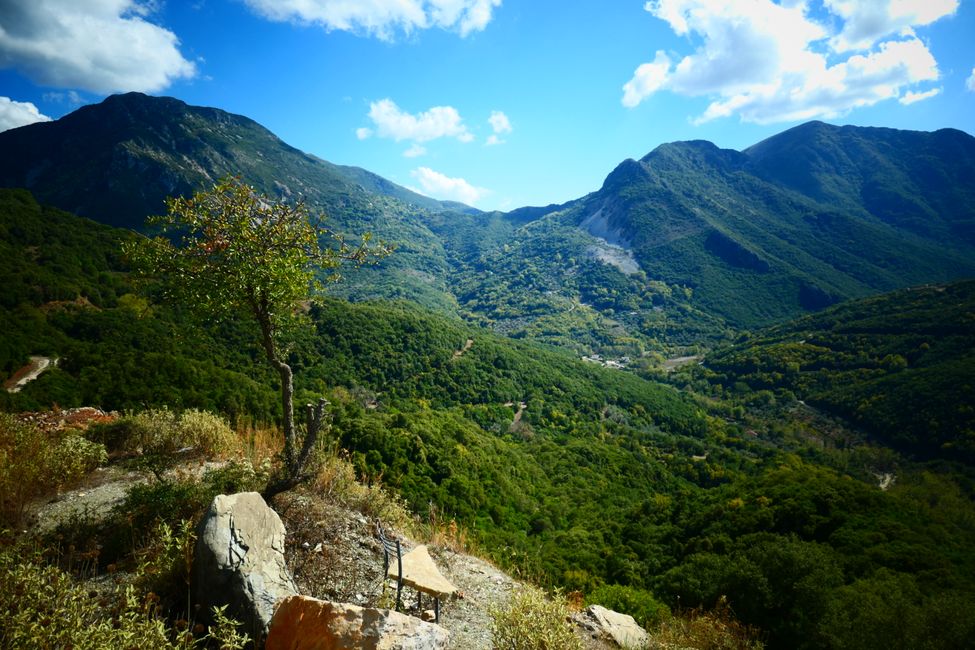
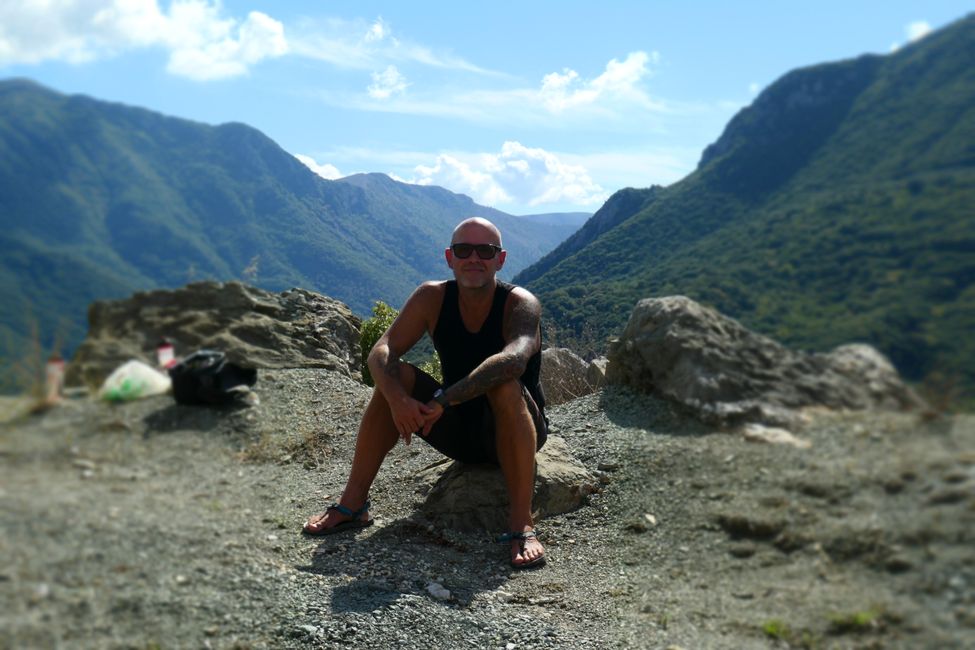
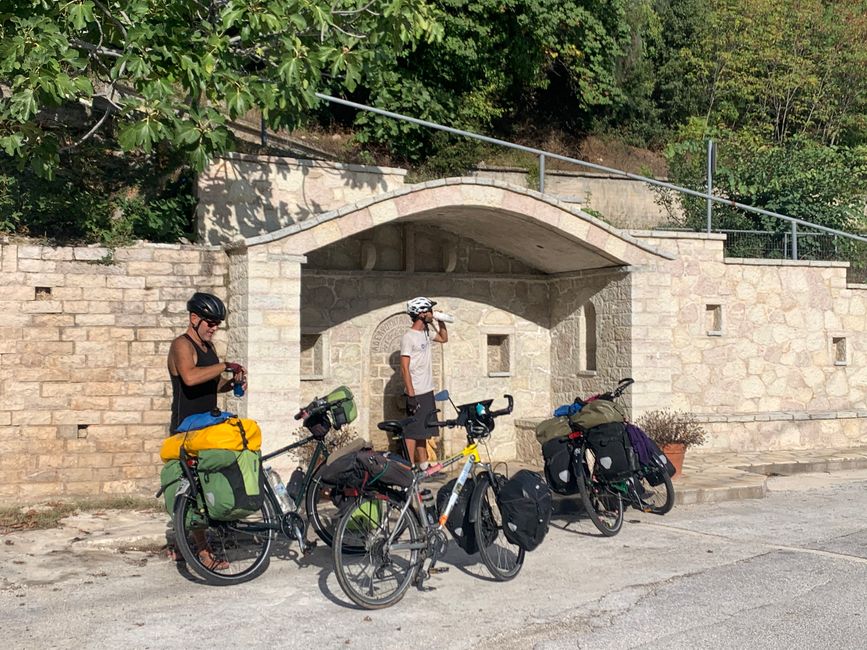
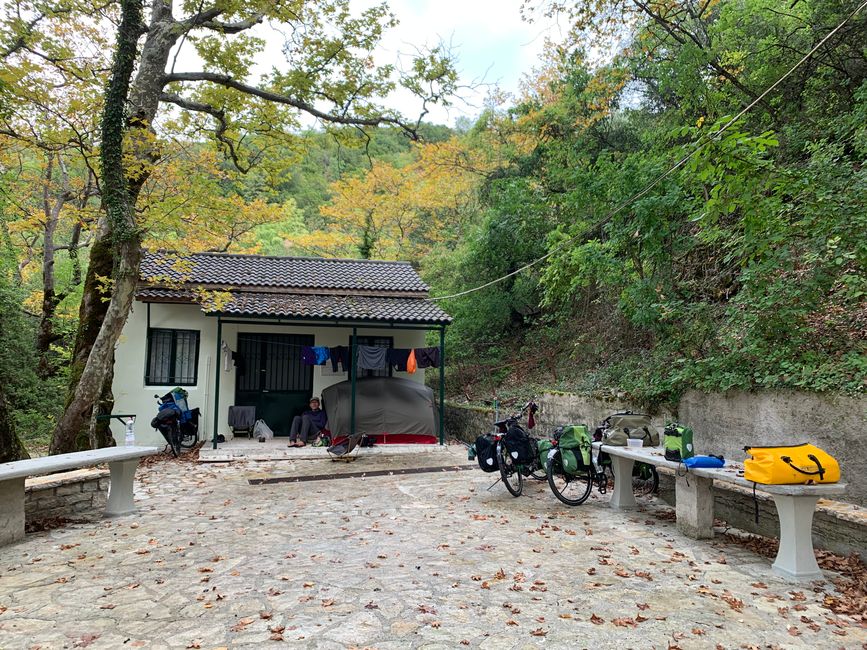
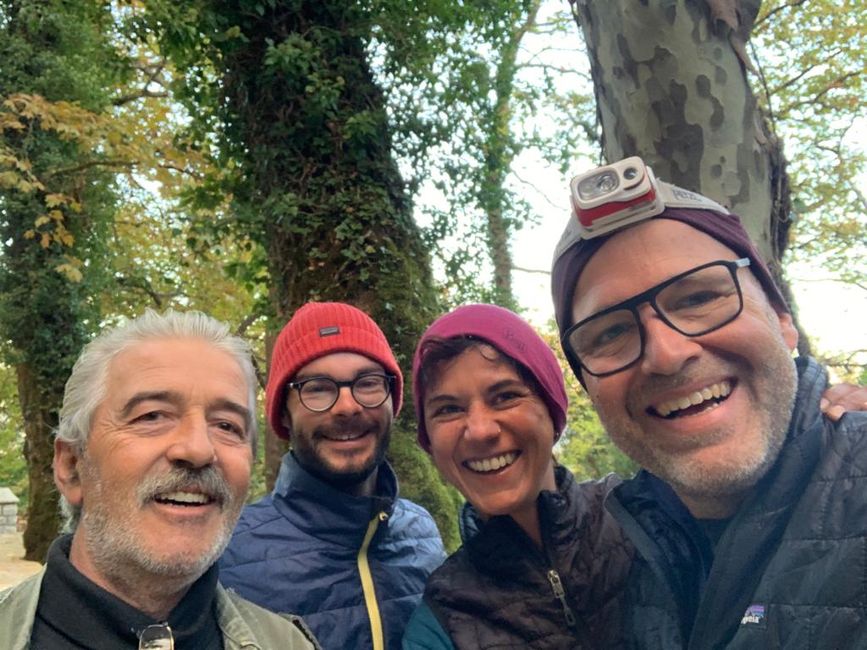
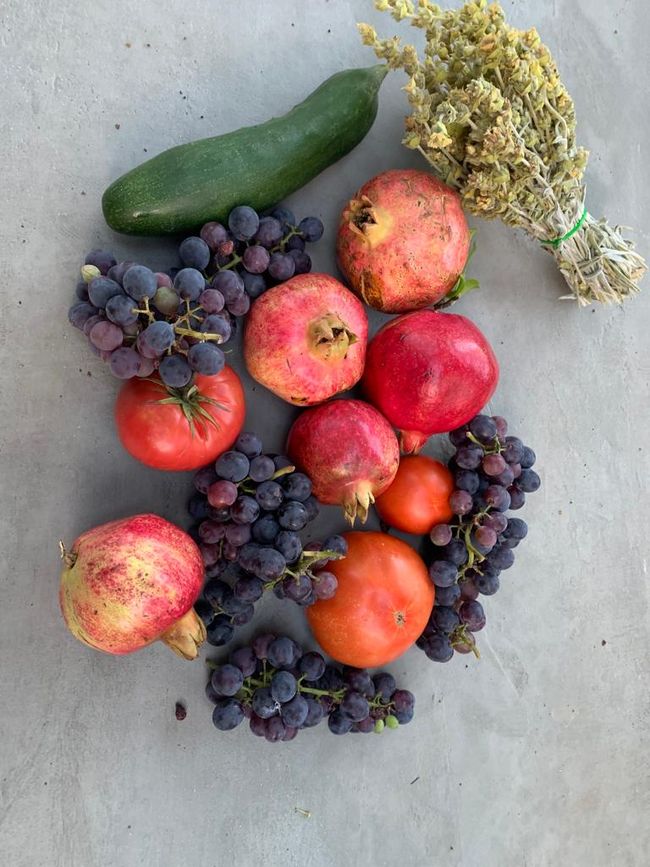
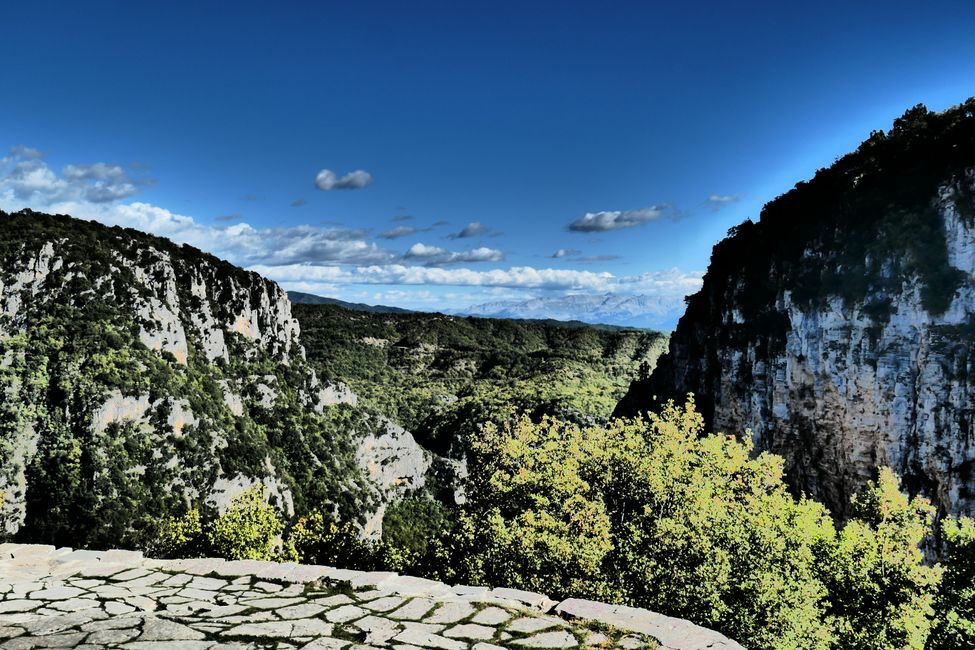
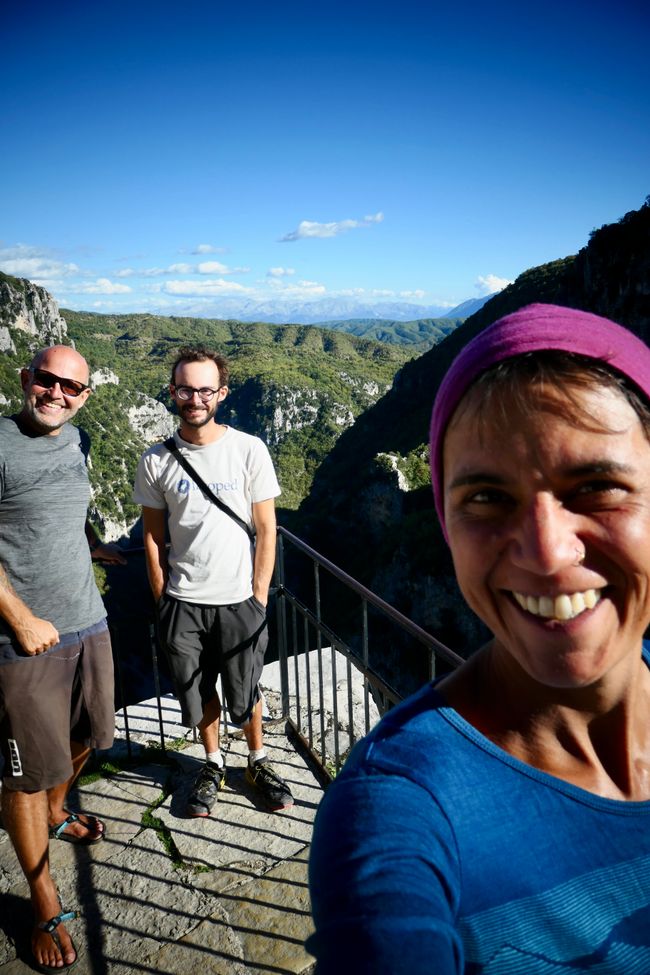
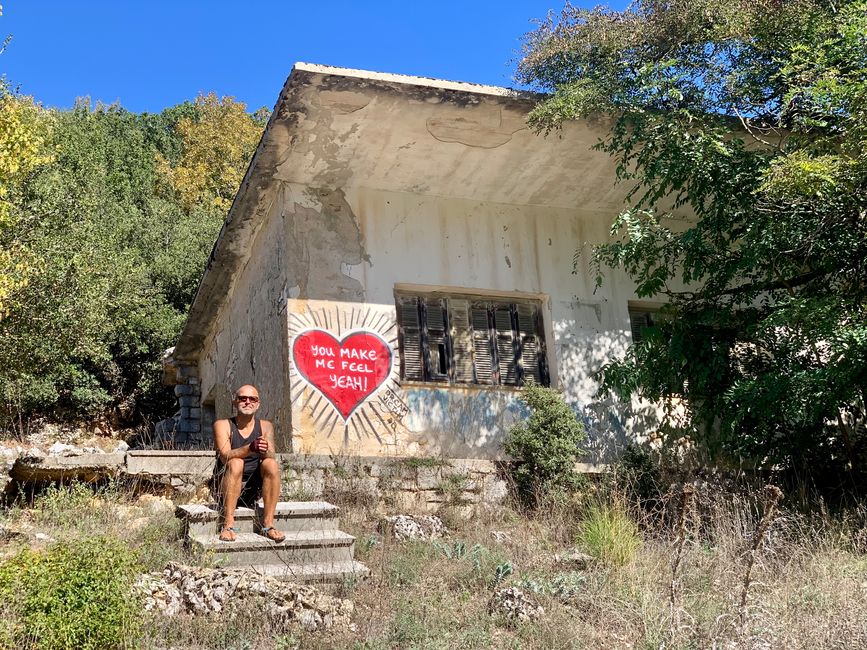
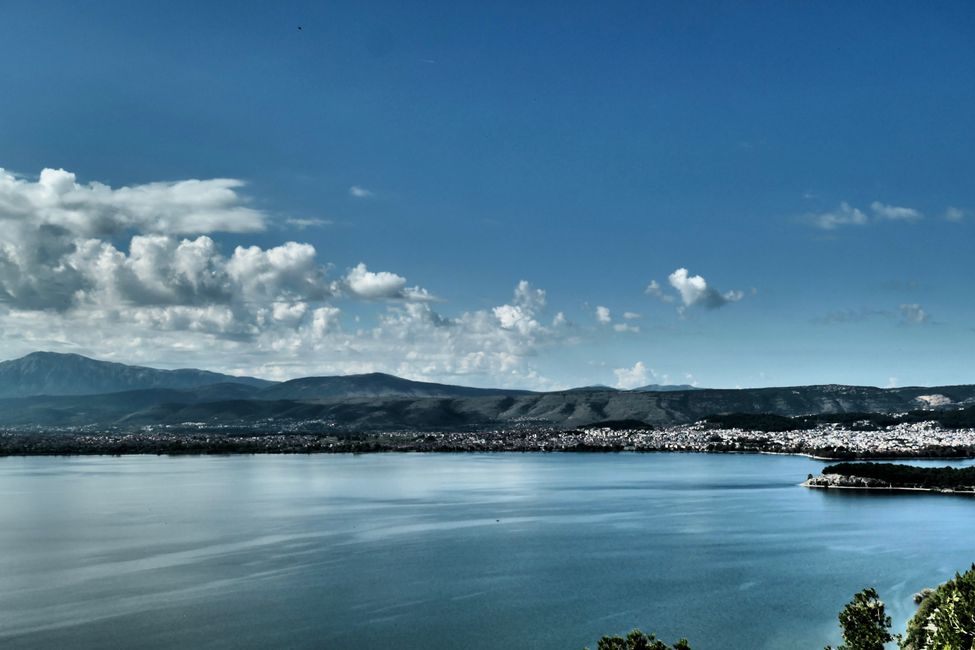
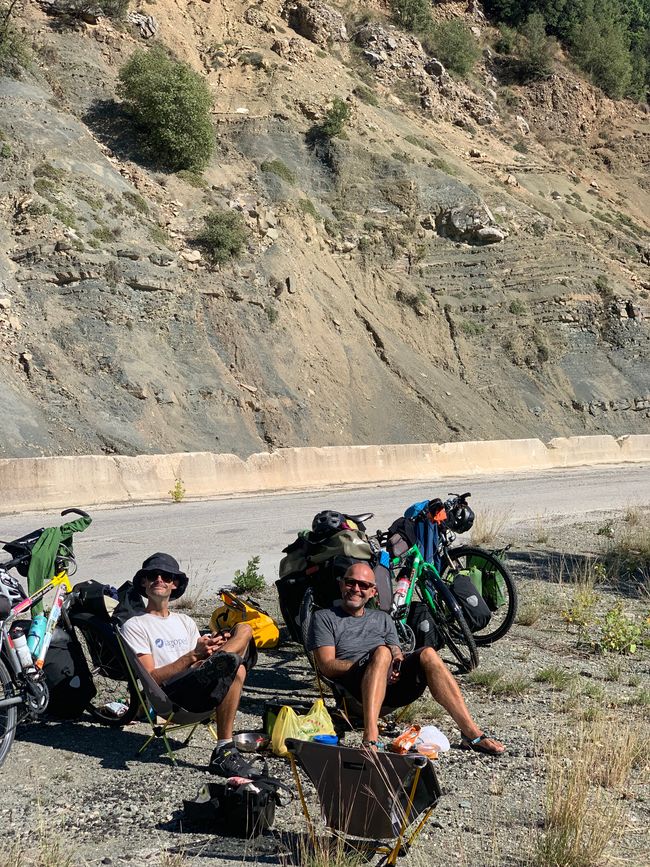
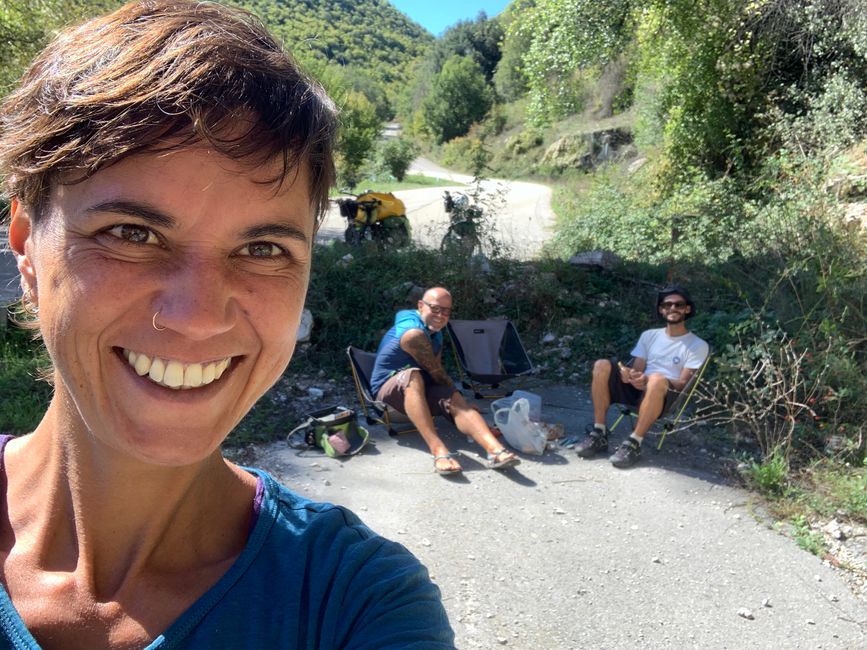
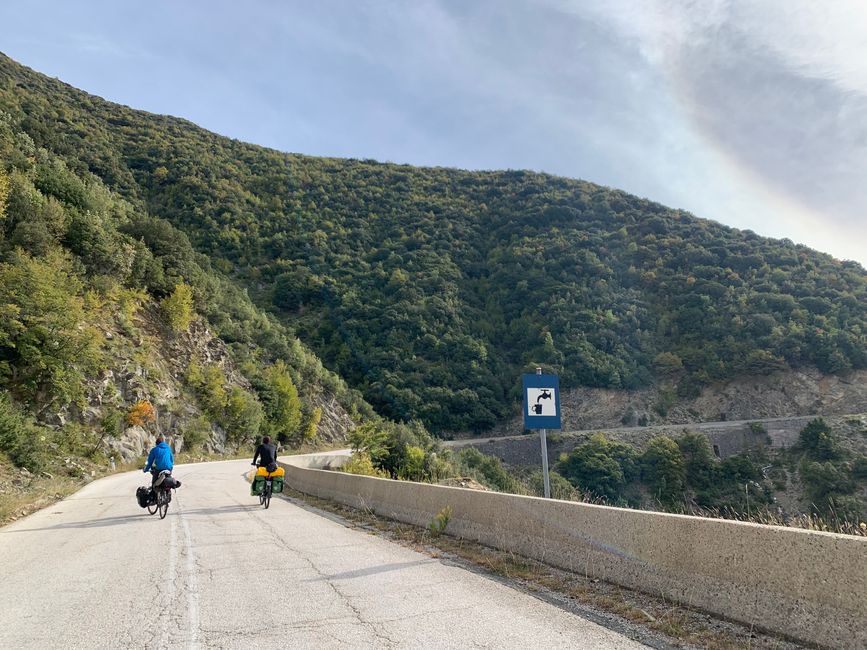
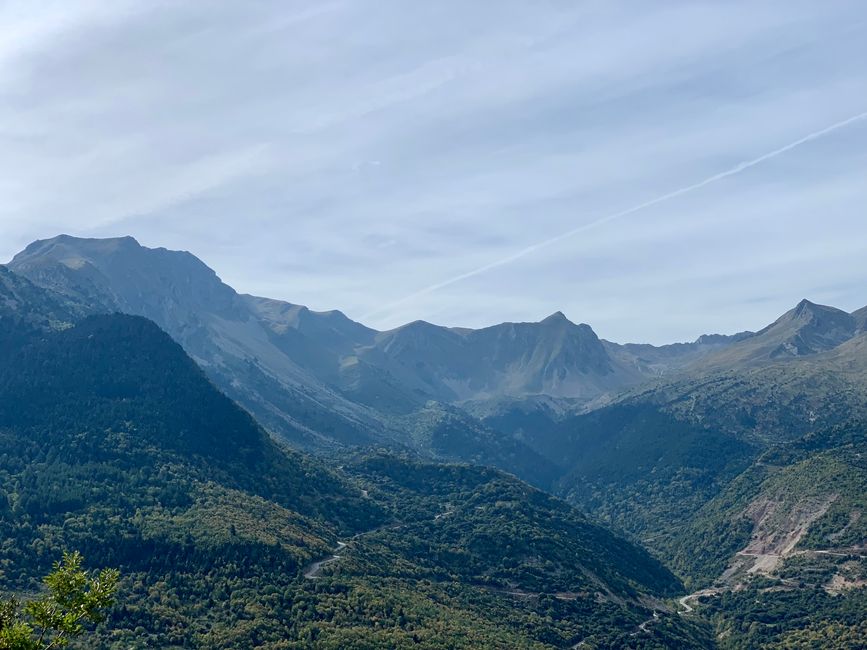
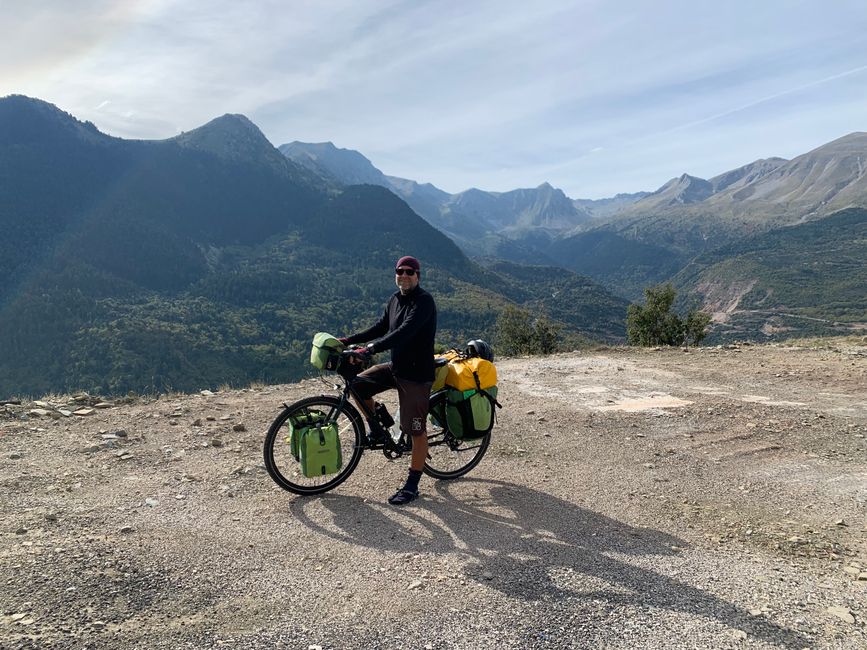
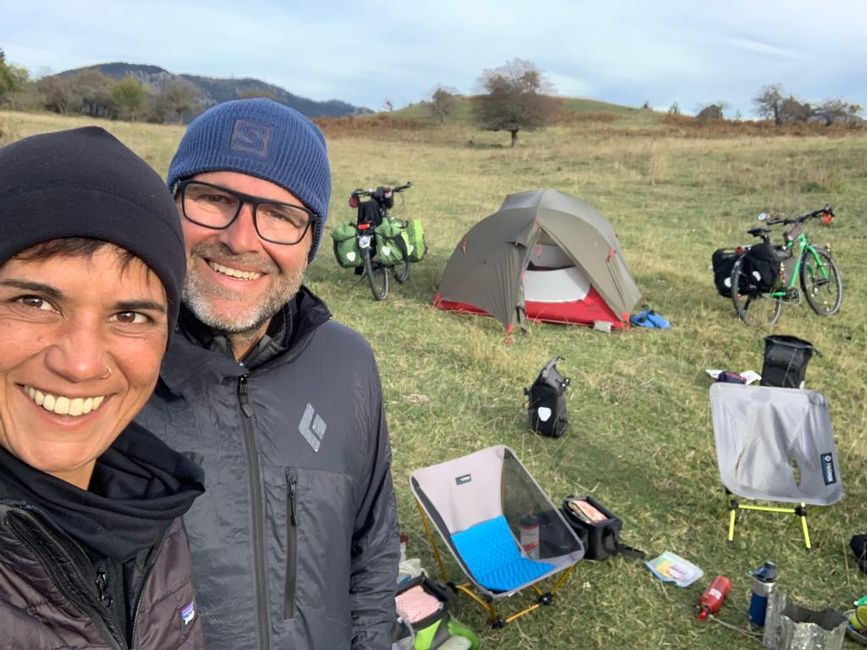
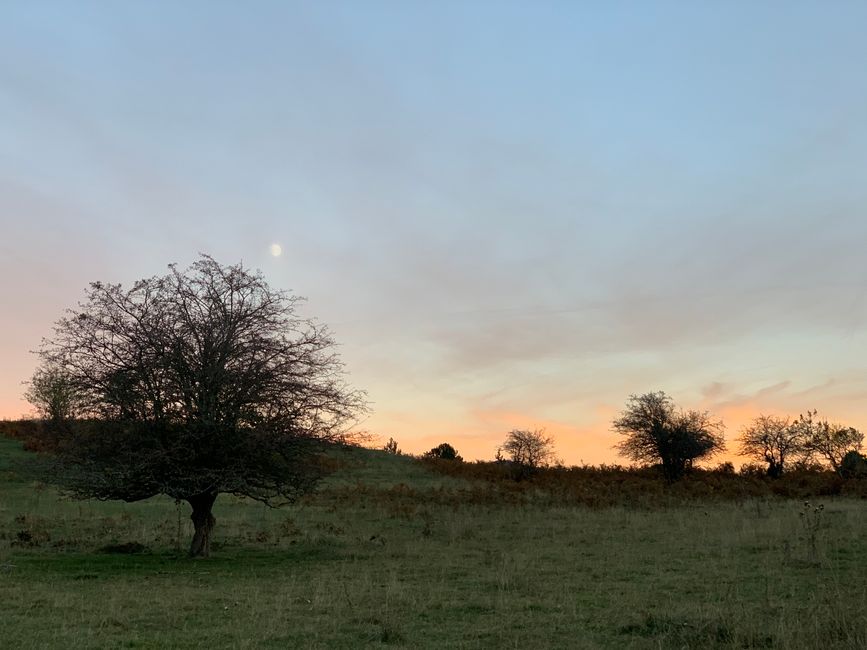
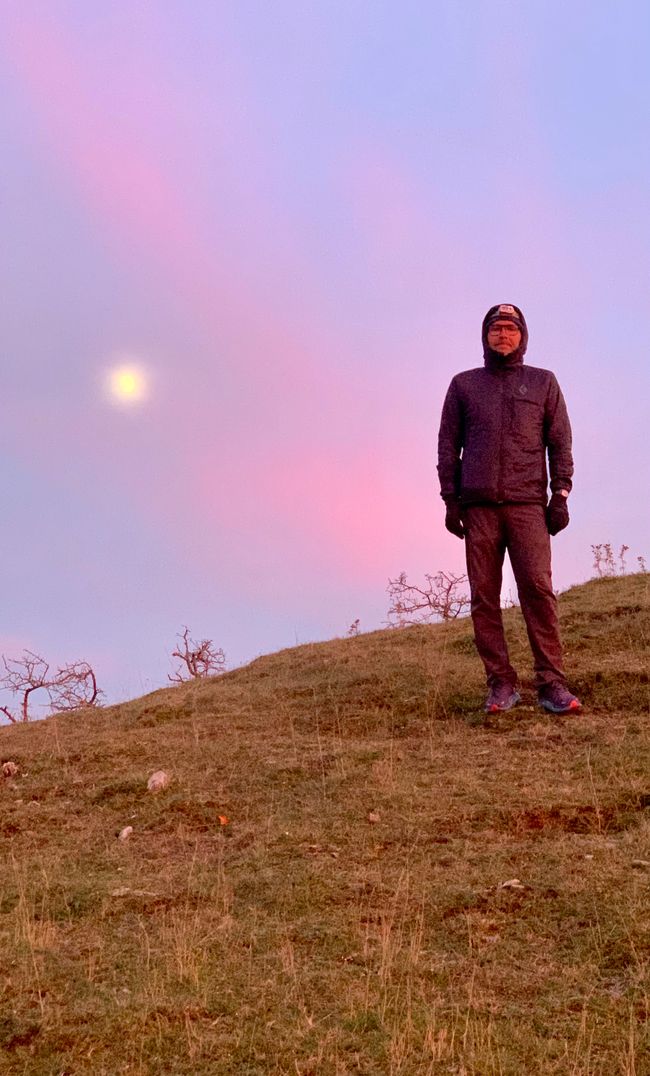
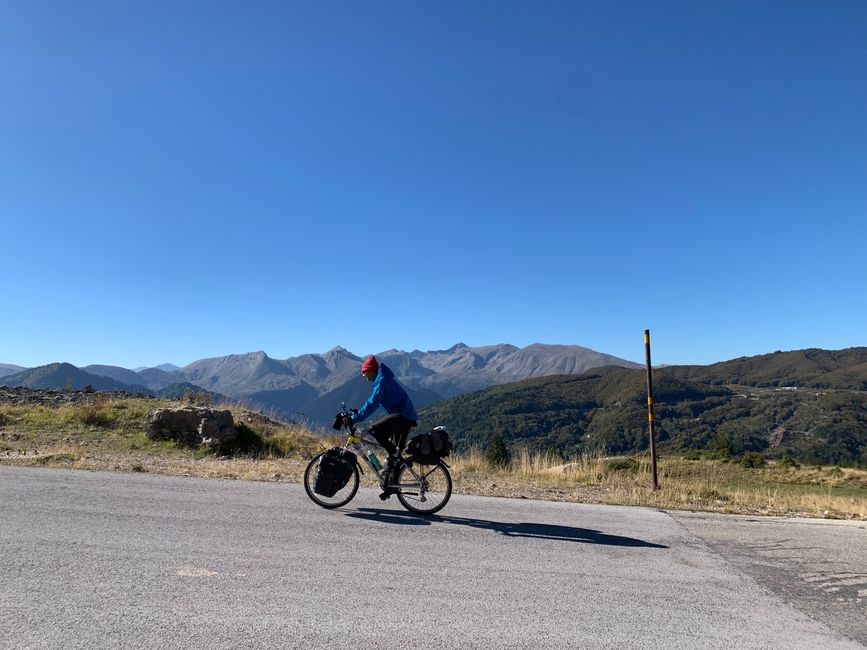
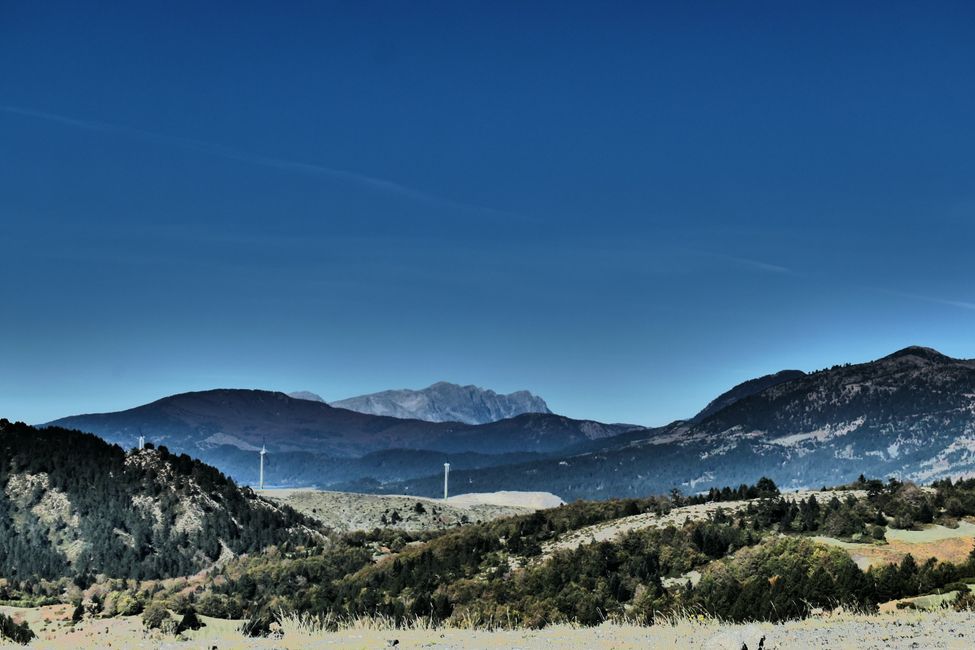
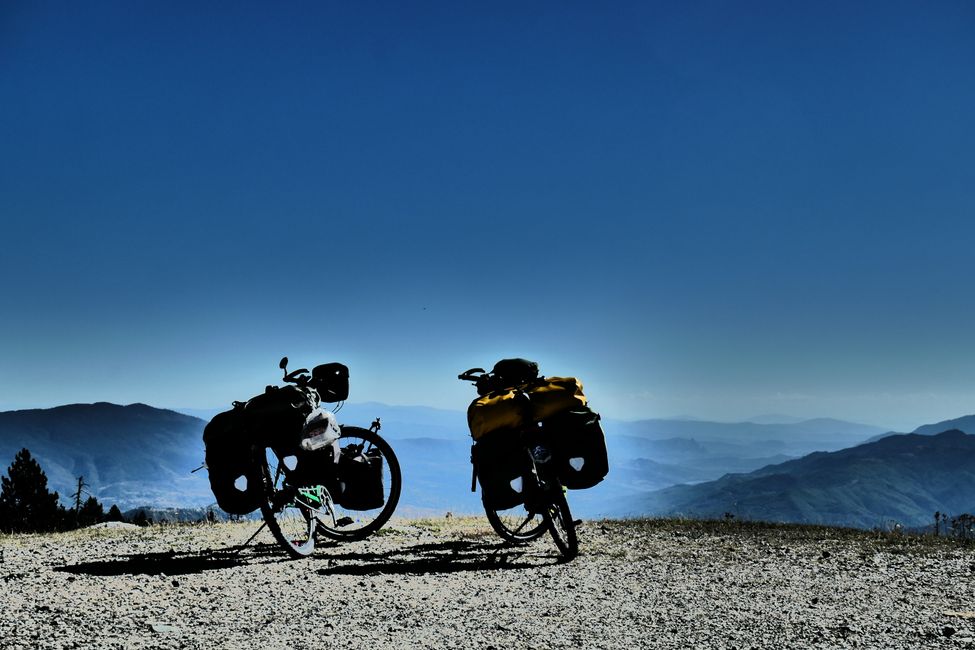
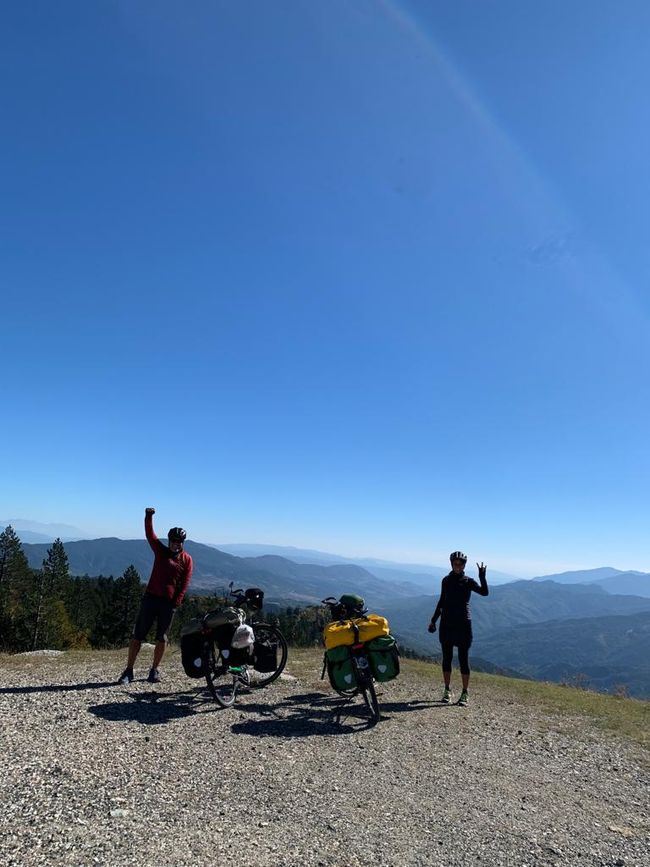
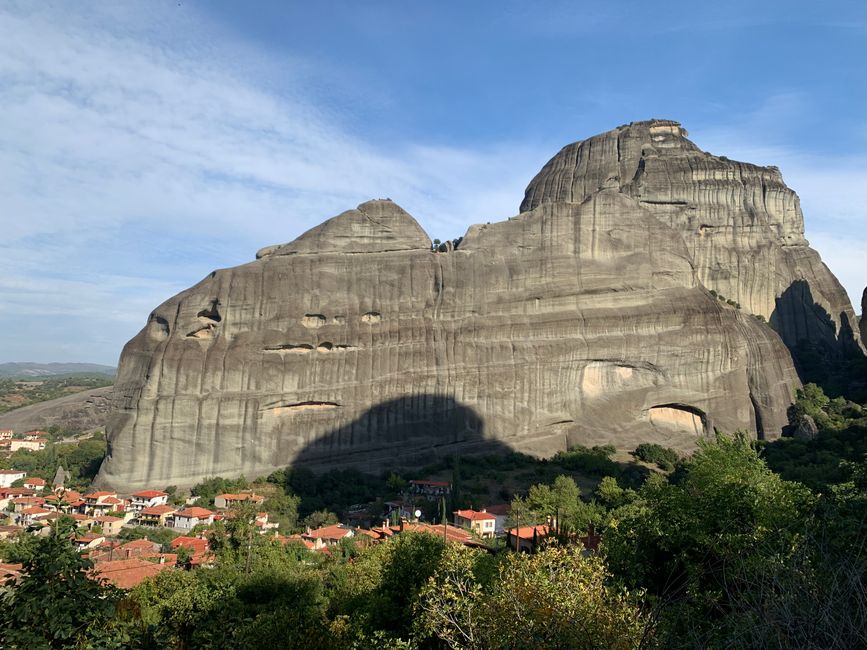
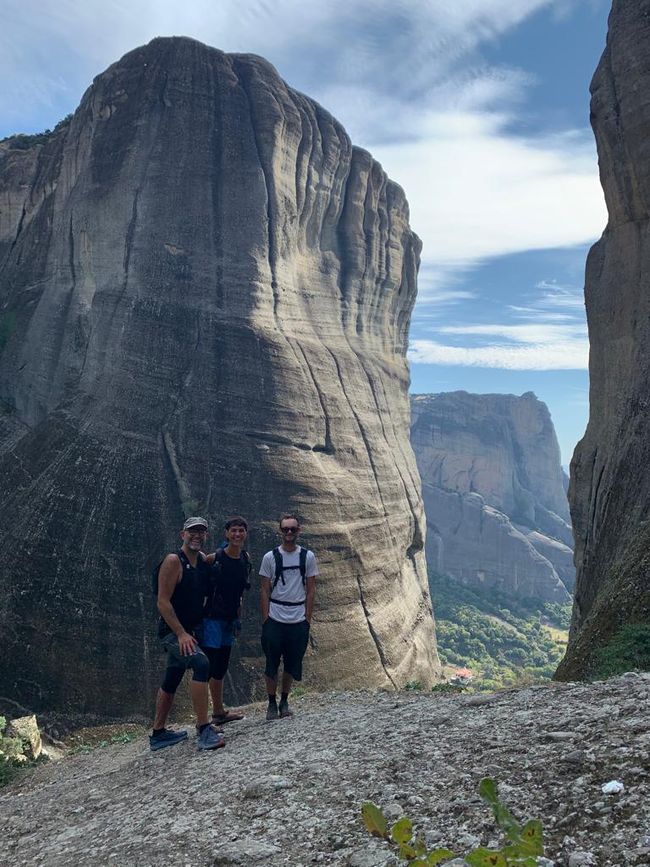
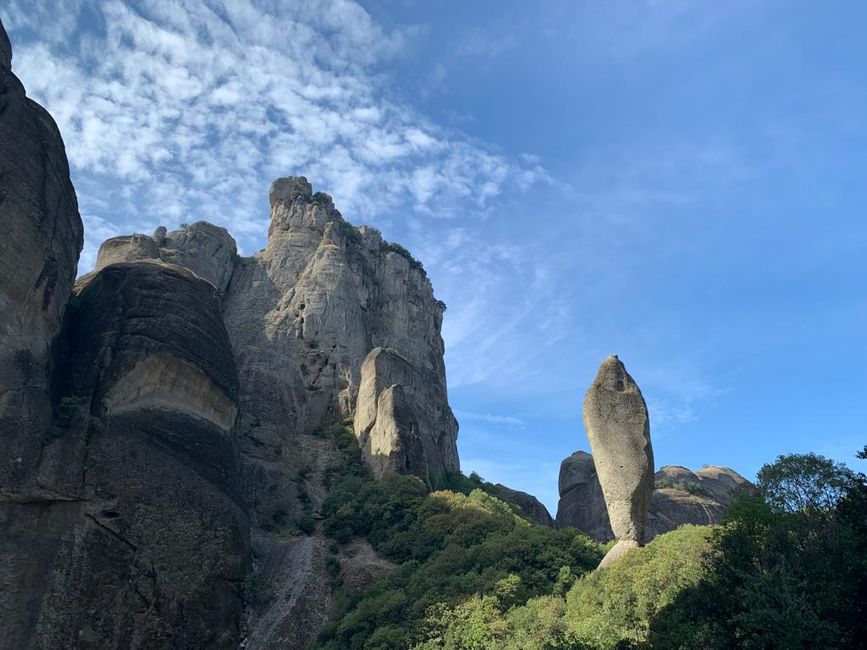
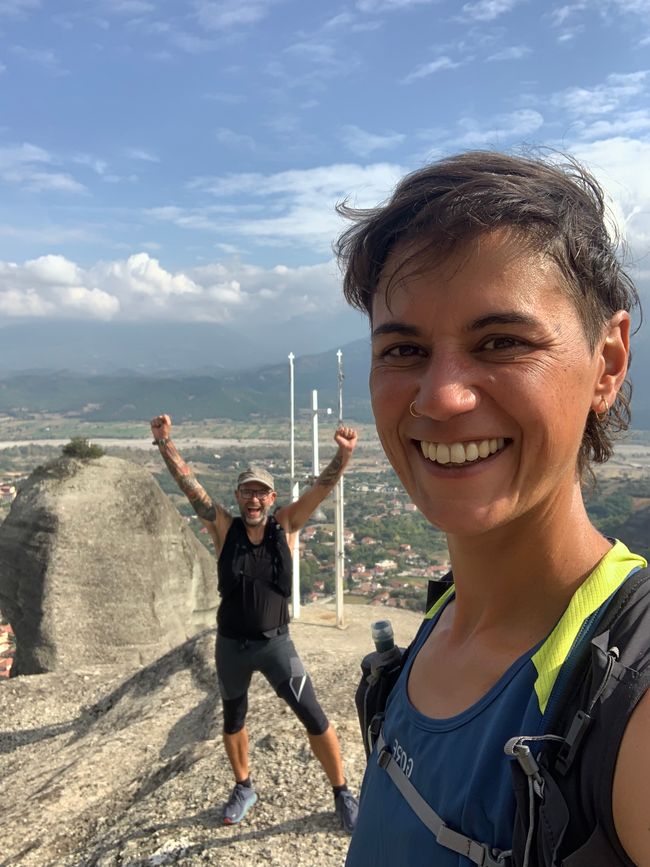
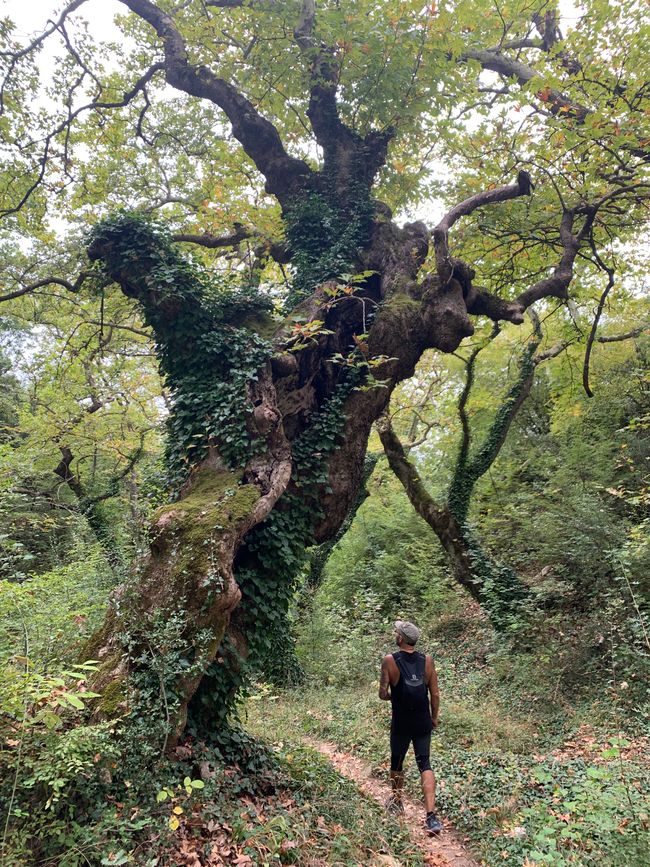
Abonu al Informilo
Here we are now - Corfu, Greece. Arrived by the sea. Summer is in its final stages. There is still time for a swim in the big water before the wind brings autumn. The light is changing, the breezes are getting cooler. The nights colder.
Near the town of Acharavi in the north of the island, we set up our camp in the garden of a Warmshowers host. An ex-pat from Germany who has moved his life and work to the south of Europe.
Everything that needs to be maintained and serviced is taken care of once again. We are granted insights into other lives that shed new light on our own concept. We meet friends from home here, who bring us winter equipment - and chocolate!!!
Thank you Margit! Thank you Harald! For the time together, for the space in your vacation suitcase!!!
Finally, we leave the bikes behind for a few days and set off on foot to explore the island. Our hiking hearts jump and laugh with joy! The change is good for the body, and this slower mode of travel gives us a new perspective on the surroundings. We hike and walk the Corfu Trail for several days, winding from the north to the south of the island.
We hike through rocky mountains with dry vegetation. Now and then through mixed and olive forests with tall, old trees. The trail leads us down to the sea and then back up into the heights. We walk through small villages - some abandoned, some touristy, some British-inhabited. We spend the nights in well-enclosed accommodations. With warm blankets and warm showers.
Corfu gives us a glimpse of the inviting, open, and friendly nature of the Greek people. It shows that this country is proud of its natural landscapes and knows how to protect them.
A very brief encounter with two older travelers who spent years sailing the seas in the past leaves me smiling. When asked if long travels have changed them, the traveler Marie answers, "it is not possible to be racist when you travel the world" - was she racist before? "Yes, kind of. I was raised in a racist family..."
What else does traveling enable or prevent us from doing?
After a few days of hiking, it's over. It is more exhausting than leisurely cycling through the country.
We continue slowly, crossing over to the mainland. Near the port city of Igoumenitsa, we settle in at a campsite for a few days. We plan for the next few weeks, prepare for the upcoming winter in Crete, and wait. Waiting for a heavy rain front to pass and waiting for our French travel friend Kevin, with whom we cycled through Albania, to arrive.
The rain clouds are vehemently replaced by a warm autumn sun, and we have another chance to take a swim in the sea. We are slowly getting used to the fact that a cold front is less persistent here in the southeast.
Our route will keep us in the mountains of the Pindos range for now, in the northern part of the country, and then slowly lead us south.
As always, when it goes uphill, I feel a slight fear in me that I won't be able to handle it with all the baggage. As always when it comes to the mountains, I feel great joy to be able to move in such landscapes and curiosity about how these landscape giants will present themselves.
The first day of cycling after almost two weeks of rest is tough. We cover a decent distance and climb 700m in altitude, but we are exhausted when we set up camp for the night. However, we are rewarded with an incredible view of the surrounding mountains and a hot sun that accompanies us up the steep switchbacks, reaching 35 degrees Celsius. I am still a bit apprehensive that the coming week will be similarly challenging.
But it turns out differently. Apparently, the body only needed a day to acclimate and understand that it can show its strength again:) In the next few days, it is almost easy to ride the little-traveled roads up and down.
In addition, Maik's cooking is a real treat. Every evening we have vegetables with legumes in various flavors, and during the day, peanut butter, jam, and chocolate tahini provide plenty of energy.
We are once again in cyclist paradise. Every valley is more beautiful than the last, every mountain shines brighter than the previous one. The weather is pleasantly autumnal, with little expected rainfall.
On a campsite in the middle of nowhere in the Pindos Mountains, on the way to the Vikos Canyon, we are surprised in the evening by locals from the nearby village. We spend the night on their festival grounds, which were specially built for the summer dance festival in the forest. Initially, we are viewed with suspicion, but once it is clear that we are European bike travelers, we are gifted with sweets and fruits. With grand gestures and photos on smartphones, we are told tales of dance, holidays, and hunting. In the morning, we enjoy homemade sweets - the Raki we brought along is tasted by Kevin and packed for the rest of the journey.
Finally, after 4 days, we arrive at the Vikos Gorge. It is the largest gorge on Earth in terms of height and width ratio. Whether it is or not, it is beautiful. We stand in awe and silence, feeling happiness and freedom.
The next day, we zoom downhill. A campsite in the city of Ioannina on Lake Pamvotida welcomes us for a night. We stock up on provisions, indulge in a thorough shower, and the following day we head back into the heights of southern Epirus.
Our destination is the rock formations of Meteora - there we want to linger, hike, and run. To get there, we continue cycling deeper into the mountains. The landscape gradually changes from Mediterranean to alpine. For hours, we pedal uphill in single file.
On this day, the surroundings appear in a rather dystopian image. Our path, a road blasted into the mountain, overgrown with herbs, crumbling in some places, is only traversed by us and a few motorized vehicles - the main traffic passes through the new highway to the east through the mountains. The respect for the upcoming route, which will take us up to 1700m above sea level, makes us - each of us for themselves - quite introspective. A day later, we climb higher on the E92 again.
We occasionally encounter dogs - big, beautiful ones that have long lost trust in humans. This is not shown by their threatening barks, but rather by their crouched posture when Maik lets out a few shouts in their direction to pass by unharmed.
The higher we climb, the colder it gets. And the more beautiful! We spend the night before the pass on an alpine meadow at 1400m above sea level. The sun, the clouds, and the moon treat us to an indescribable play of colors before bedtime. It couldn't be more beautiful.
The next day, we make the final ascent to the Katara Pass. The wind pushes sometimes and bites cold at other times. The sun illuminates the surroundings as if proudly showing us one of its worlds. The sky is cloudless. Once again, happiness spreads in my heart. Also because we only realized two days ago that by crossing the Mavrovouni Mountain, we also crossed the source of the Vjosa River. The same river we visited in Albania weeks ago. A cycle is complete. In Greece, it is called Aoos, a beautiful name.
The feeling that overwhelms me when I see the vastness from the top, I can hardly describe it. Gratitude, happiness - plenty of both and more.
As in Albania weeks ago, we are not really driven by anything here either. It is like a wonderful piece of music or a delicious meal - you don't want it to end.
After an incredible, kilometer-long downhill and after warming up our limbs a bit, we set up camp in the woods again, not wanting to quickly leave this wonderful solitude.
What awaits us the next day in Kastraki, at the rocks of Meteora, is once again an incredible spectacle of nature. Blocks of rock rise out of nowhere in various formations and sizes, with some clergy built their monasteries on and in the stone. As a devotion to God or to demonstrate their own greatness?
We agree that this is a place to stay. Hiking, running, eating, sleeping, and a hot shower every day - it couldn't be more beautiful! Even the fact that it is already quite cold doesn't detract from the enjoyment...
This journey has so many highlights that I can hardly keep up with my emotions! Thank you, world!
Abonu al Informilo
Respondu
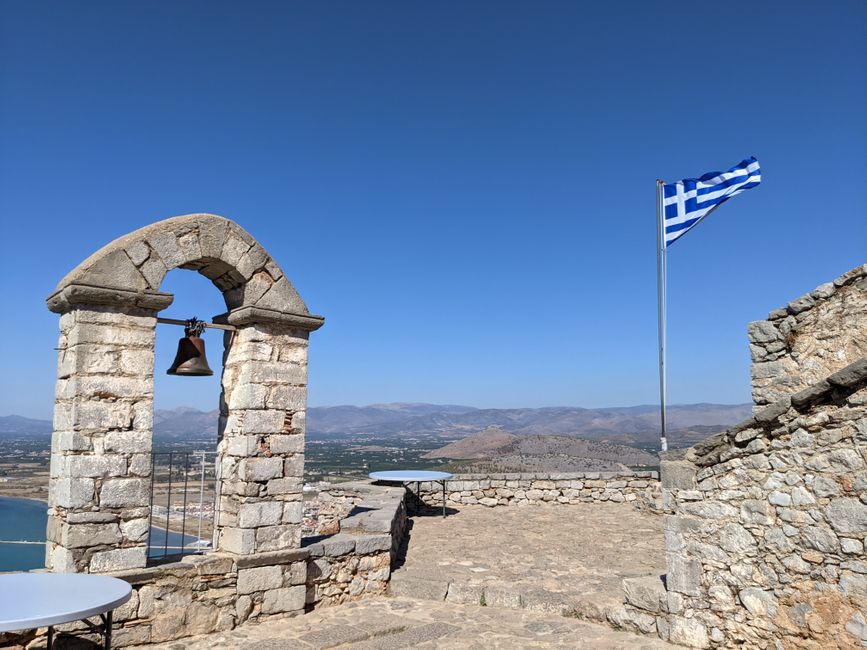
Vojaĝraportoj Grekio
